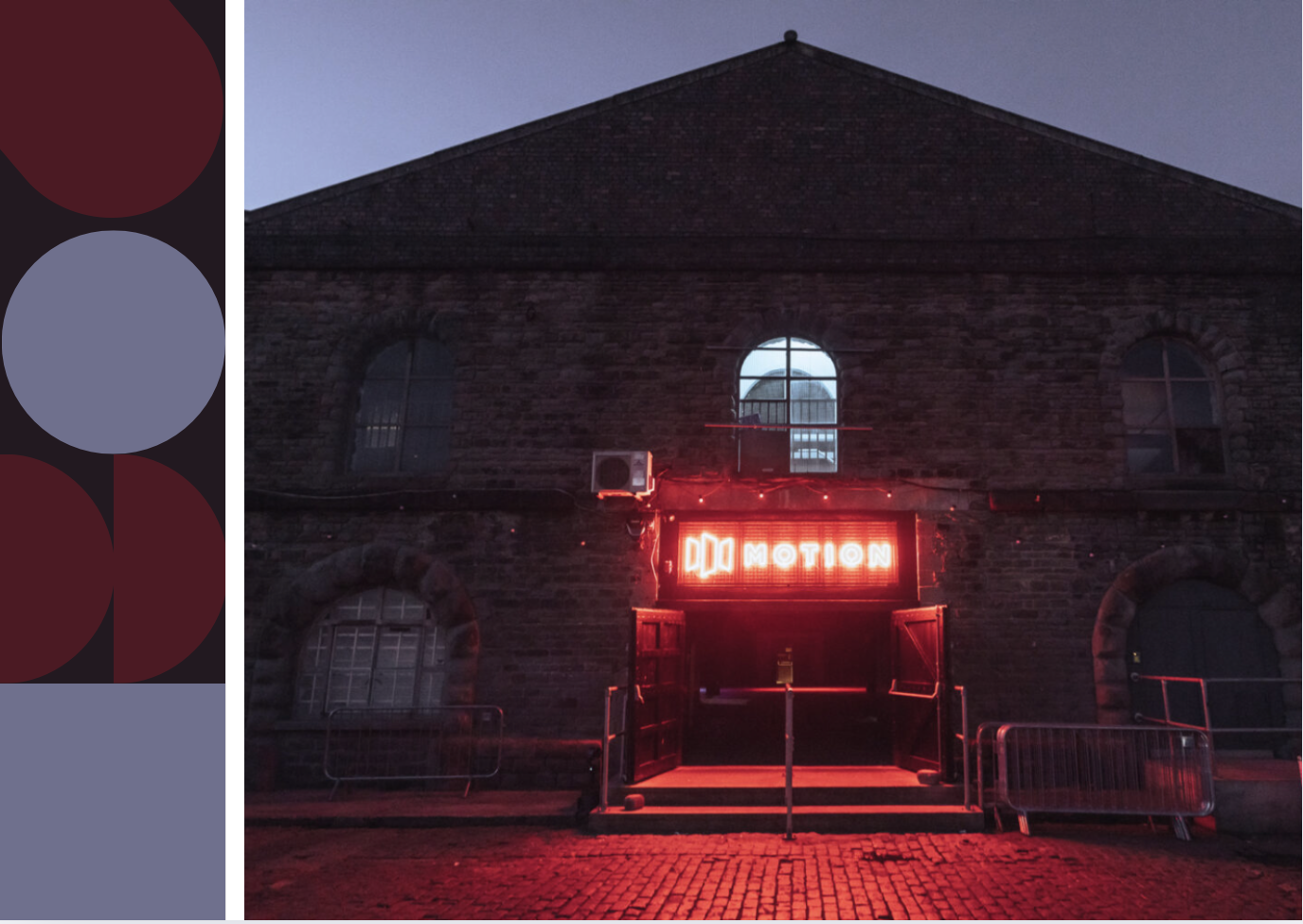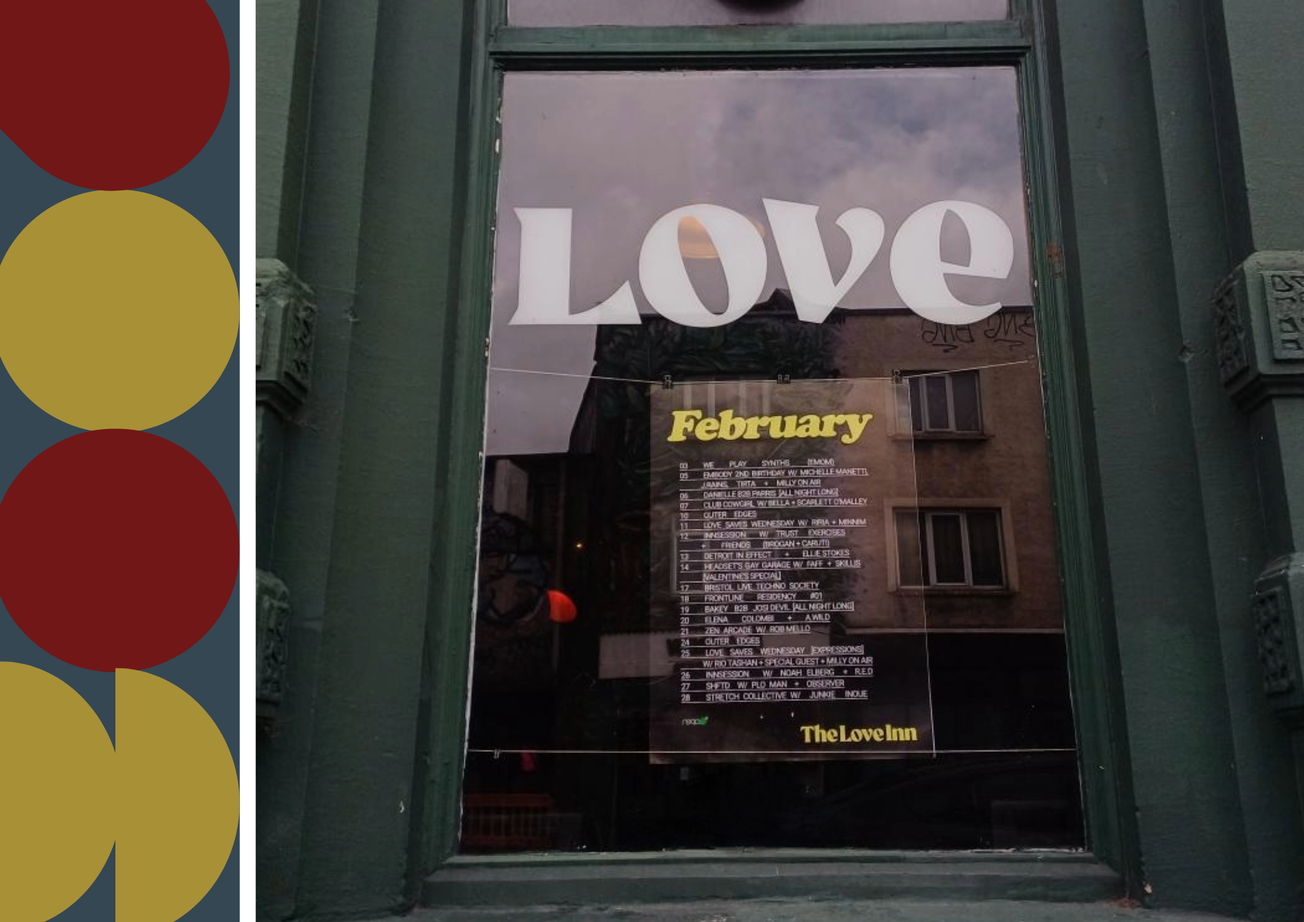By Amelie Peters, Music Sub-Editor
In a saddening statement released yesterday, managing director Daniel Deeks announced the closure of Motion. One of Bristol's most renowned nightclubs and music venues in Bristol, playing host to huge names such as Black Country New Road, The Chemical Brothers and Bob Vylan, the venue is set to close July 2025.
Initially opening in 2003 as a Skatepark called SK8 & Ride, the venue was then transformed in late 2007 to accommodate a wider array of events. Transforming into what electronic music magazine DJ Mag voted as one of the Uk's top 100 clubs.
In a heartfelt email to all those on the Motion's mailing list, Deeks went on to explain the 'impending lease expiration' as the cause for the closure. Due to the uncertainty of the economic and regulation changes in the sector, it is becoming ever more difficult for venues supporting the Uk's nightlife to stay open.
Despite previous financial difficulties the venue has remained a cultural hub within the city, keeping its doors open for a variety of musical line-ups and a huge array of events.
Motion's closure announcement follows that of Gravity early last year and 395, both hubs for Bristol's growing nightlife. Gravity cited both financial struggles and the landlord's decision to repurpose the premises as reasons for closure. There seems to be a trend of redevelopment of cultural nightlife properties in Bristol, setting an uncertain and somewhat damming prospect for the future of nightlife within the city.
As reported by the Night Time Industries Association (NTIA), the latest statistics on club closures suggest that between June 2020 to June 2024, the industry has seen roughly around four hundred and eighty nightclubs close, with sixty-five closing this year alone.
The numbers themselves indicate a desperate need for intervention and support in the sector. The NTIA have called for 'immediate government action' siting a broader crisis across the 'UK's nighttime cultural economy' and are currently in the process of requesting business rate relief in the autumn budget.
In an attempt to keep the doors of motion open, the team 'conducted an extensive pre-application process' with Bristol city council, receiving a collectively positive review of the plan.
This idea was offered as a viable solution by Motion's landlords and still holds a level of sway on the basis that the venue continues to be a considerable economic asset to the city. The plan involved the implementation of a more extensive use of the property, developing the un-used space upstairs into affordable creative spaces.
As it currently stands, Motion is a grade-two listed industrial warehouse, meaning the building is considered to be of significant cultural interest and therefore there is a foundation for warrants of preservation.
For the past twenty-one years, Motion has been a proud feature of Bristol's cultural and social hub. The loss of the venue will have a striking blow on the vibrancy of the city's nightlife.
Deeks concluded with a somewhat positive message, suggesting there are 'several potential pathways forwards', but that it would heavily rely on community support and Bristol learning to 'better appreciate and protect (its) cultural' venues.
Featured Image: Chris CowleyWhat would you miss most about Motion?








